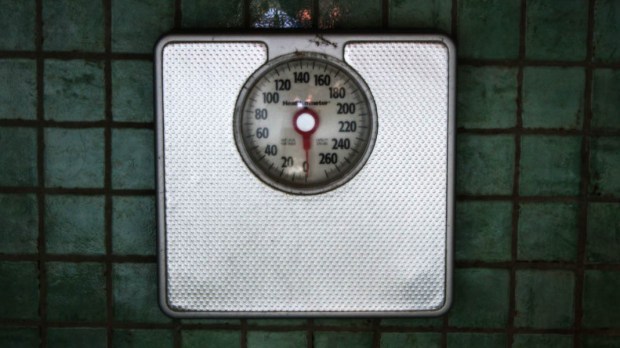I’ve always had a sweet tooth. It’s almost embarrassing how indiscriminate it is. I enjoy milk chocolate as much as dark chocolate, which, according to my friends, indicates that I have the palate of a 5-year-old. I savor overripe bananas. When I was pregnant, I paid extra for the gummy prenatal vitamins instead of the pill version. I don’t hate black licorice.
Every year, when the days are dark and the trees are bare, and in the aftermath of some serious holiday eating, I usually make a New Year’s resolution that goes something like this: No ice cream on weeknights. Or: No chocolate except on special occasions. Or, if I’m feeling particularly ambitious: No sweets at all except on special occasions.
A few weeks later, when the days are still dark and the trees are still bare, I usually make a Lenten resolution that goes something like this: No ice cream. Or: No chocolate. Or: No sweets, period.
I would have no more to say about any of this if my motives for my New Year’s resolutions and my Lenten sacrifices weren’t so similar. Yes, I always hope that by the end of Lent, in addition to the spiritual good wrought from my fasting, I will be less attached to sweets. But I often subconsciously hope for another outcome: that my jeans will feel looser, that the scale will show my current weight minus five, that as the weather warms up I feel more ready for spring and summer fashion.
There’s nothing wrong with the physical effects of fasting; we are physical beings, after all. It’s possible that fasting or abstaining from certain foods can go hand-in-hand with working toward healthy weight loss or developing better eating habits. What’s good for us spiritually is often what’s good for us physically, too.
The real problem is when vanity drives our Lenten fasts more than our desire for spiritual gain. And I suspect that this is a bigger issue than any of us wants to admit.
What if we struggle to follow our Lenten sacrifices without a divided heart?
First, it may be helpful to revisit why we fast in the first place. We fast before Mass to prepare ourselves to receive the Eucharist; similarly, in Lent, we fast in preparation of Easter, of celebrating our risen Lord. Fasting helps to detach us from worldly things and remind us that God alone can satisfy our hunger; it can be a form of intercession for others; it’s a powerful aid in spiritual warfare. Conflating fasting and dieting is like mistaking a sword for a butter knife, so much does it diminish its spiritual gravity.
Second, our resolutions themselves may need to be modified so we can avoid succumbing to vanity.
Maybe it’s as simple as avoiding the bathroom scale, measuring your spiritual progress and detachment from comfort instead of pounds. Maybe it’s fasting from things that have little caloric significance, like table salt or the half and half in your coffee. Maybe it’s avoiding food-centric resolutions altogether — other than those prescribed by the Church — and giving up music while driving, social media, or Netflix.
Only you know what’s motivating your Lenten fasting; I haven’t even mentioned prayer and almsgiving, the two other pillars of the season. But when it comes to fasting, think outside the junk-food aisle.
Read more:
The examination of conscience: easier than stepping on the scale each morning

